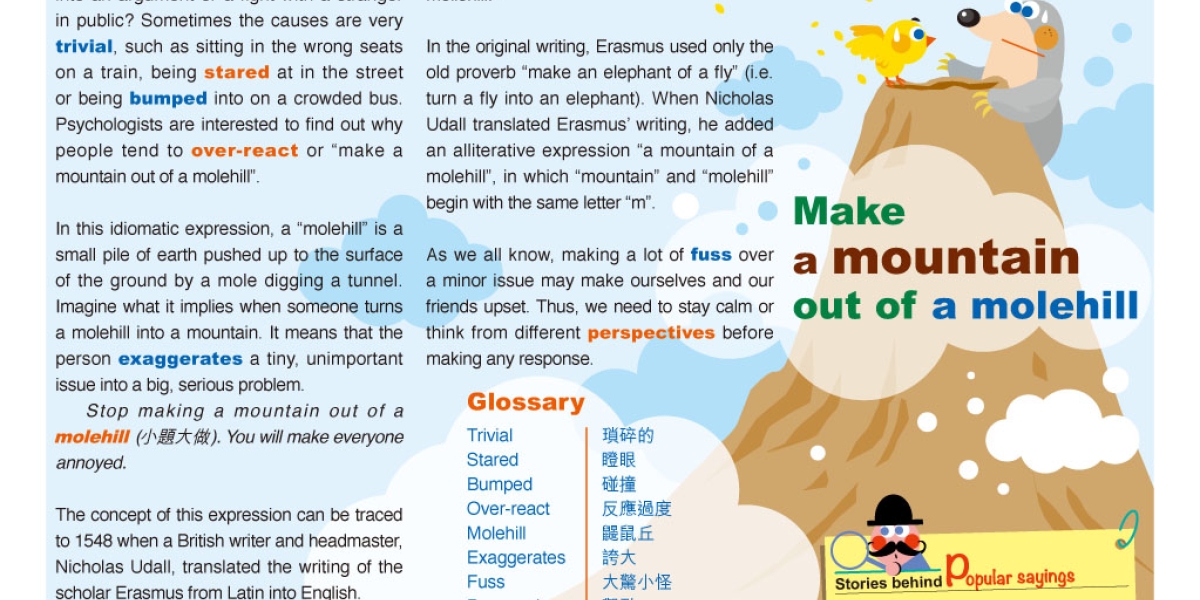
Make a mountain out of a molehill
Have you ever wondered why people get into an argument or a fight with a stranger in public? Sometimes the causes are very trivial, such as sitting in the wrong seats on a train, being stared at in the street or being bumped into on a crowded bus. Psychologists are interested to find out why people tend to over-react or “make a mountain out of a molehill”.
In this idiomatic expression, a “molehill” is a small pile of earth pushed up to the surface of the ground by a mole digging a tunnel. Imagine what it implies when someone turns a molehill into a mountain. It means that the person exaggerates a tiny, unimportant issue into a big, serious problem.
Stop making a mountain out of a molehill (小題大做). You will make everyone annoyed.
The concept of this expression can be traced to 1548 when a British writer and headmaster, Nicholas Udall, translated the writing of the scholar Erasmus from Latin into English.
“The Sophistes of Grece coulde … make an Elephant of a flye, and a mountaine of a mollehill.”
In the original writing, Erasmus used only the old proverb “make an elephant of a fly” (i.e. turn a fly into an elephant). When Nicholas Udall translated Erasmus’ writing, he added an alliterative expression “a mountain of a molehill”, in which “mountain” and “molehill” begin with the same letter “m”.
As we all know, making a lot of fuss over a minor issue may make ourselves and our friends upset. Thus, we need to stay calm or think from different perspectives before making any response.
|
Glossary
|
|
|
Trivial
|
瑣碎的
|
|
Stared
|
瞪眼
|
|
Bumped
|
碰撞
|
|
Over-react
|
反應過度
|
|
Molehill
|
鼴鼠丘
|
|
Exaggerates
|
誇大
|
|
Fuss
|
大驚小怪
|
|
Perspectives
|
觀點
|






